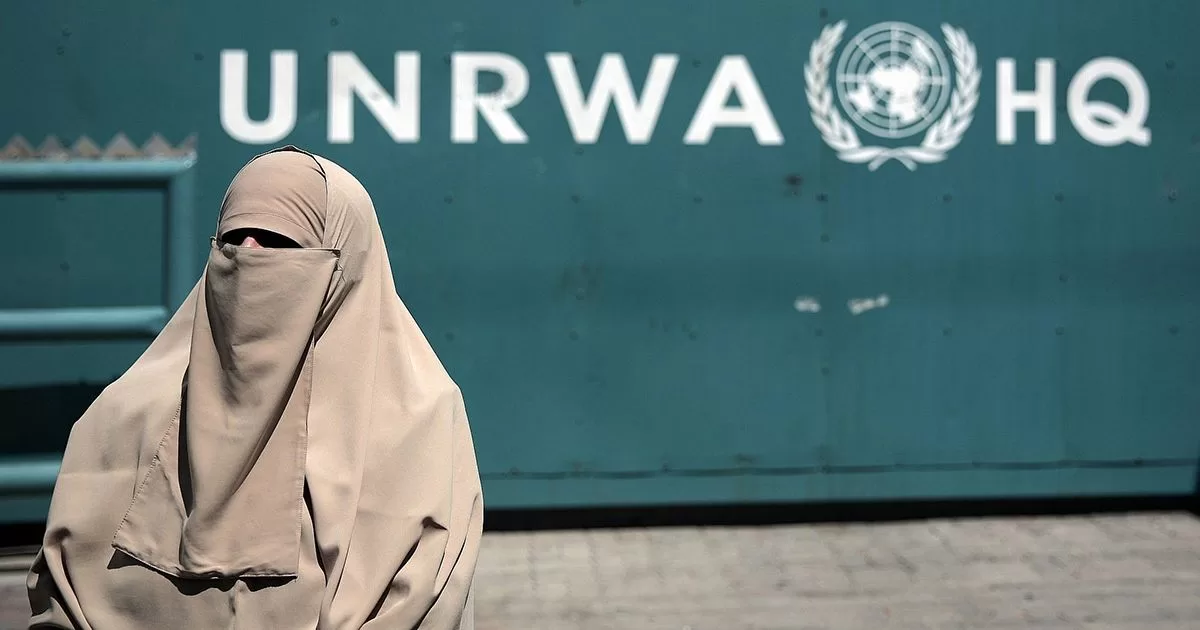Israeli officials presented evidence that UNRWA employees allegedly participated in kidnappings, ammunition distribution and the attack on a kibbutz where 97 people died.
UNRWA, which provides food, shelter, health clinics and education to millions of Palestinians, announced that the accused employees have been fired and that the United Nations Office of Internal Oversight Services is investigating the case.
Meanwhile, while the investigation is being carried out, nearly 20 countries, including the United States, suspended financial aid to the humanitarian agency, including the United Kingdom, Canada, Australia, Germany, Finland, Italy and the Netherlands.
The United States was the largest donor to UNRWA in 2022, with $344 million; followed by Germany, with 202 million dollars; and the European Union, with 114 million.
Of the countries that advocate the most for the Palestinians, the large oil producer Saudi Arabia is in eighth place, with only 27 million dollars, and Turkey in tenth place, with 25.2 million.
Other Arab countries and large oil producers, such as the United Arab Emirates, donated amounts of less than $21 million.
What is UNRWA?
UNRWA was created by the United Nations (UN) in 1949 and has some 30,000 employees spread across Gaza, the West Bank, Jordan, Lebanon and Syria, most of them Palestinians.
In recent years, UNRWA has been singled out by Israel for maintaining relations with Hamas in Gaza and publishing content contemptuous of Jews in textbooks distributed in schools.
For UNRWA, the concept of Palestinian refugees is “persons whose place of habitual residence was Palestine during the period from June 1, 1946 to May 15, 1948, and who lost both their home and their means of subsistence as a result of the conflict of 1948”.
The decline of the Ottoman Empire and the First World War at the beginning of the 19th century marked the beginning of a conflict that is still alive 100 years later.
Israel, the land promised to the Jews, and Palestine, home to Muslims, is the territory that the British proposed to divide between both parties and that the UN awarded in 1947 to create two states.
“How it was distributed and who really did it are questions that many ask, but no one has a categorical explanation,” Ferran Espaser, professor emeritus of Law at the University of Lleida, in Spain, told DIARIO LAS AMÉRICAS.
“What we do know is that a few hours after the creation of the State of Israel, the territory was assaulted by its Arab neighbors,” he recalled.
Concerns
The UN calls on countries to continue providing aid funds to provide food and water in Gaza, while it investigates Israel’s complaint against UNRWA.
Concerned nations warn that ending the funding will lead to further humanitarian deterioration in Gaza.
According to data from the Hamas government in Gaza, nearly 25,000 people have been killed during Israeli attacks and almost two million civilians have been displaced, approximately 85% of the Strip’s population.
There are Western nations, such as Ireland, Norway and Spain, that warn that ending the funds would cause an “even worse” humanitarian situation in Gaza and choose to continue helping.
The Irish government cited the agency as providing “life-saving assistance to 2.3 million people.” While Norwegian Foreign Minister Espen Barth Eide urged other donors to consider the consequences of funding cuts: “We must not collectively punish millions of people. We must distinguish between what individuals may have done and the help offered by UNRWA.”
Likewise, the Minister of Foreign Affairs of Spain, José Manuel Albares, said: “We are closely following the investigation and the results it may yield due to the actions of around a dozen people, out of 30,000 workers.”
On the other hand, the director of UNRWA in Spain, Raquel Martín, said: “It is absurdly irresponsible to cut off aid during an armed conflict, when the International Court of Justice asks to increase humanitarian aid to Gaza.”
In a statement issued by the Arab League, its 22 member states in the Middle East and North Africa criticized the funding cuts.
Egypt’s Foreign Minister Sameh Shoukry believes the funding cuts amount to “collective punishment.”
“Arab countries censure the cuts, and they have the right to do so, but they say nothing about supplanting that aid or at least giving something more,” claimed Professor Espaser.
Israel
Meanwhile, Israel appears willing to continue its military offensive against Hamas “until it disappears,” as Israeli Prime Minister Benjamin Netanyahu indicated.
However, Egypt, after meeting with representatives of the United States and other countries in Paris, presents Hamas with a ceasefire, backed by Israel, in exchange for releasing nearly 140 Israeli hostages who still remain in the hands of the terrorist group.
Israel would also allow more aid to reach Gaza and release a number of Palestinian prisoners.
But Hamas appears to reject the offer to hand over hostages and stresses that it will only accept the complete withdrawal of Israeli troops.
“We are talking first of all about a complete and total ceasefire, and not about a temporary truce,” Hamas adviser Taher al-Nunu told the AFP press agency, adding that once the fighting stops , “the rest of the details can be discussed,” including the release of the hostages.
Hours earlier, Qatari Prime Minister Mohammed bin Abdulrahman commented that he believes Hamas has “let go” of its demand for a complete ceasefire as a condition, something that Israel flatly rejects.
“We are in a much better situation than a few weeks ago,” he said during an appearance at the Atlantic Council in Washington, DC.

